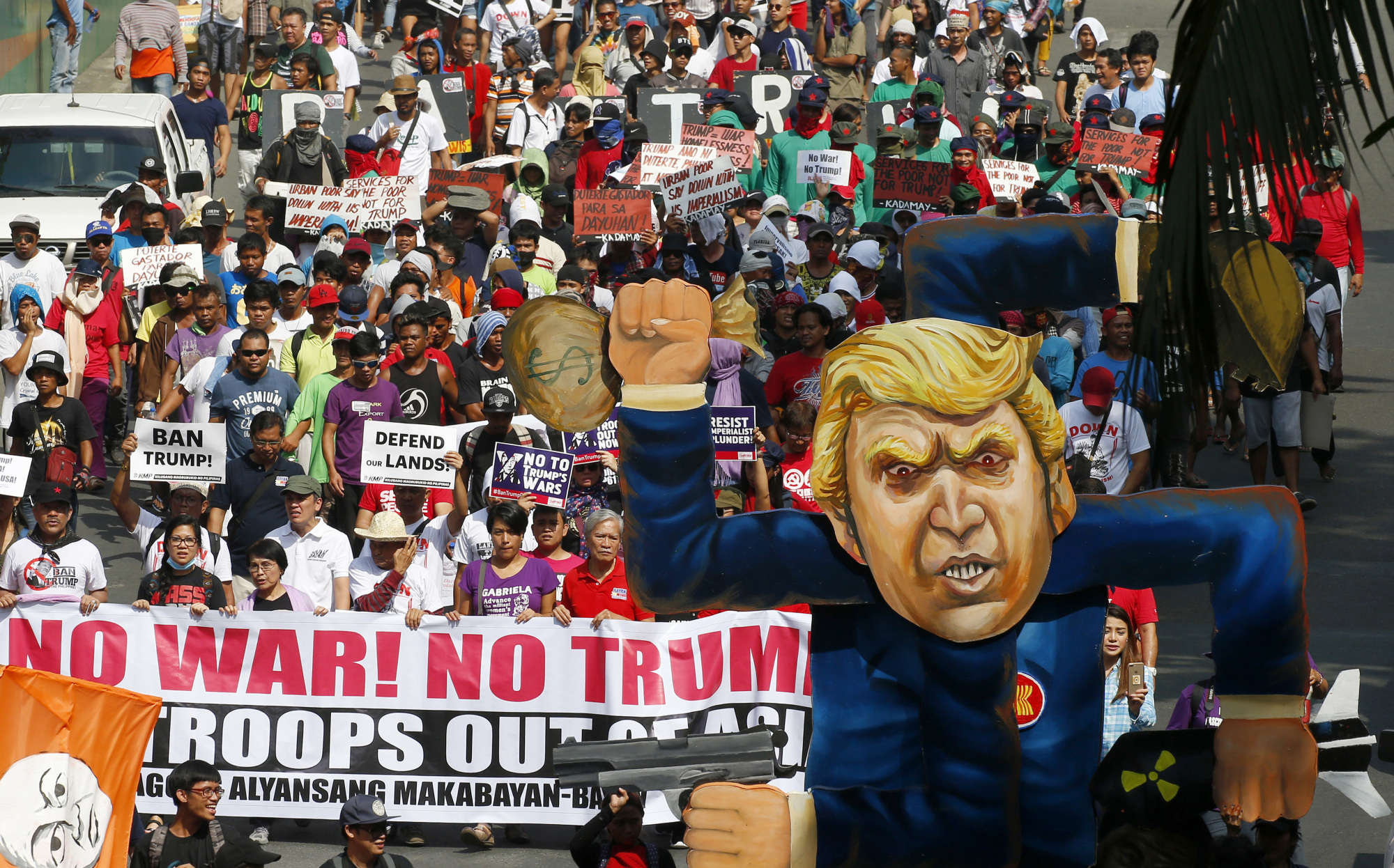As ASEAN and its dialogue partners gather in the Philippines for their annual political and security gab-fest — the East Asian Summit — there is a grudging but growing recognition that U.S. policy regarding the South China Sea imbroglio has failed. The U.S. policy community needs to acknowledge its shortcomings on these issues and going forward benefit from the lessons learned.
According to U.S. Secretary of State Rex Tillerson speaking to the press in Beijing on Nov. 9, the U.S. position on the South China Sea issues is that "we insist on upholding the freedom of navigation that claimants be consistent with international law and that claimants should stop construction and militarization of outposts. ..." Earlier, on Oct. 18, at the Center for Strategic and International Studies he declared "... we will not shrink from China's challenges to the rules-based order and where China subverts the sovereignty of neighboring countries and disadvantages the U.S. and our friends." These are brave words — but that is exactly what has happened — at least in the eyes of many Southeast Asian countries.
More generally, U.S. policy objectives in the South China Sea are the peaceful resolution of territorial disputes on the basis of international law including the 1982 U.N. Convention on the Law of the Sea (UNCLOS), respect for legal and diplomatic processes and the early conclusion of a robust, binding Code of Conduct.



















With your current subscription plan you can comment on stories. However, before writing your first comment, please create a display name in the Profile section of your subscriber account page.